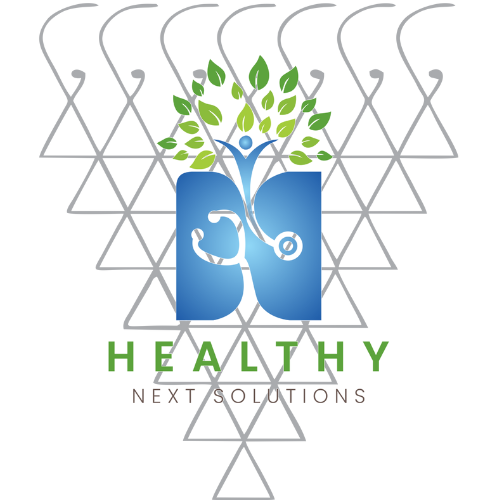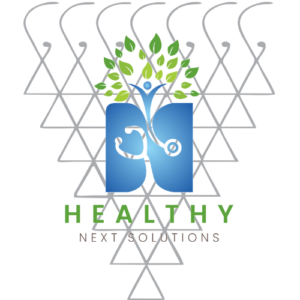
What is Hypertension ?
Hypertension, Causes, Symptoms And Prevention:– Hypertension, commonly known as high blood pressure, is a condition where the force of the blood against the walls of the arteries is consistently too high. Blood pressure is measured in millimetres of mercury (mmHg) and is recorded with two numbers: systolic pressure over diastolic pressure. The systolic pressure is the higher number, representing the force of blood against arterial walls when the heart beats, and the diastolic pressure is the lower number, representing the pressure when the heart is at rest between beats.
Here are some key points about hypertension:
1. Normal Blood Pressure: A normal blood pressure reading is typically around 120/80 mmHg. Hypertension is often defined as having a blood pressure consistently at or above 140/90 mmHg.
2. Primary Hypertension: This is the most common type of hypertension, and its exact cause is often unknown. Factors such as age, genetics, and lifestyle choices can contribute to primary hypertension.
3. Secondary Hypertension: This type is caused by an underlying condition, such as kidney disease, hormonal disorders, or the use of certain medications. Treating the underlying cause can help manage secondary hypertension.
4. Risk Factors: Several factors can increase the risk of developing hypertension, including age, family history, being overweight or obese, lack of physical activity, a diet high in sodium, excessive alcohol consumption, and smoking.
5. Complications: Untreated or poorly controlled hypertension can lead to serious health problems, including heart disease, stroke, kidney disease, and other cardiovascular issues.
6. Symptoms: Hypertension is often referred to as the “silent killer” because it typically does not cause noticeable symptoms. Regular blood pressure monitoring is essential for early detection and management.
7. Lifestyle Modifications: Lifestyle changes play a crucial role in managing hypertension. These may include adopting a healthy diet (such as the DASH diet, which emphasizes fruits, vegetables, and low-fat dairy products), regular exercise, maintaining a healthy weight, limiting alcohol intake, and reducing sodium consumption.
8. Medications: In some cases, medications may be prescribed to help lower blood pressure. These may include diuretics, beta-blockers, ACE inhibitors, angiotensin II receptor blockers, and calcium channel blockers.
Causes of Hypertension:
Hypertension, or high blood pressure, can result from a combination of various factors. The exact cause of primary hyperte
nsion (essential hypertension) is often unknown, but several risk factors and contributing elements have been identified. Secondary hypertension is caused by an underlying condition. Here are some common causes and risk factors for hypertension:
1. Age: The risk of hypertension increases with age. Blood vessels naturally lose flexibility over time, and the risk of high blood pressure rises.
2. Genetics (Family History): If your parents or close relatives have hypertension, you may be more likely to develop it as well. There is a genetic predisposition to high blood pressure.
3. Obesity: Being overweight or obese puts additional strain on the heart and increases the likelihood of developing hypertension. Excess weight can also contribute to other risk factors, such as insulin resistance.
4. Lack of Physical Activity: A sedentary lifestyle is a risk factor for hypertension. Regular physical activity helps keep the heart and blood vessels in good condition and can contribute to weight management.
5. Poor Diet: Diets high in sodium (salt), saturated fats, and cholesterol can contribute to hypertension. Additionally, a diet lacking in fruits, vegetables, and whole grains may increase the risk.
6. Excessive Alcohol Consumption: Drinking too much alcohol can raise blood pressure. Moderate alcohol consumption is generally defined as up to one drink per day for women and up to two drinks per day for men.
7. Tobacco Use and Smoking: Smoking or chewing tobacco can temporarily raise blood pressure and damage blood vessels over time, contributing to hypertension.
8. Chronic Stress: Chronic stress can lead to a temporary increase in blood pressure. While the long-term effects of stress on hypertension are not entirely clear, managing stress is essential for overall health.
9. Sleep Apnea: Untreated sleep apnea, a condition in which breathing stops and starts during sleep, is associated with an increased risk of hypertension.
10. Kidney Disease: Conditions that affect the kidneys, such as chronic kidney disease or kidney artery stenosis, can contribute to hypertension.
11. Hormonal Factors: Hormonal changes, such as those associated with pregnancy, birth control pills, and hormonal therapy for menopause, can contribute to elevated blood pressure.
Symptoms of Hypertension:
Hypertension, often referred to as the “silent killer,” usually doesn’t cause noticeable symptoms in its early stages. It’s a condition that can develop over many years, and individuals may not be aware of it until it reaches a more advanced stage or causes complications. This is why regular blood pressure monitoring is crucial for early detection and management. However, in some cases, hypertension may present with symptoms or signs that could include:
1. Headaches: Some people with high blood pressure may experience headaches, particularly in the back of the head. However, headaches are a common ailment and can have various causes.
2. Dizziness or Light-headedness: Elevated blood pressure can sometimes lead to feelings of dizziness or lightheadedness. This can occur, for example, when standing up quickly.
3. Blurred or Double Vision: Hypertension can affect the blood vessels in the eyes, leading to changes in vision. Blurred or double vision may occur in some cases.
4. Shortness of Breath: Severe hypertension can lead to shortness of breath. This can be a sign of heart failure or other complications.
5. Chest Pain: Chest pain is a symptom that may be associated with severe hypertension and could indicate potential complications, such as heart problems.
It’s important to note that these symptoms are not specific to hypertension and can be caused by various other health issues. Moreover, many people with high blood pressure do not experience any symptoms, highlighting the importance of regular blood pressure checks.
Preventions of Hypertension:
Preventing hypertension involves adopting a healthy lifestyle and making choices that support overall cardiovascular health. Here are some key preventive measures:
1. Maintain a Healthy Weight: Being overweight or obese is a significant risk factor for hypertension. Losing excess weight through a combination of a balanced diet and regular physical activity can help lower blood pressure.
2. Adopt a Healthy Diet: Follow a diet rich in fruits, vegetables, whole grains, and lean proteins. The Dietary Approaches to Stop Hypertension (DASH) diet, which emphasizes these food groups and limits sodium intake, has been shown to be effective in preventing and managing hypertension.
3. Reduce Sodium Intake: High sodium levels in the diet can contribute to high blood pressure. Limiting the consumption of processed and salty foods can help lower sodium intake.
4. Engage in Regular Physical Activity: Regular exercise is essential for maintaining overall health and preventing hypertension. Aim for at least 150 minutes of moderate-intensity aerobic exercise or 75 minutes of vigorous-intensity exercise per week, along with muscle-strengthening activities on two or more days per week.
5. Limit Alcohol Consumption: Moderate alcohol consumption is defined as up to one drink per day for women and up to two drinks per day for men. Excessive alcohol intake can contribute to hypertension.
6. Quit Smoking: Smoking damages blood vessels and can raise blood pressure. Quitting smoking is beneficial for overall cardiovascular health and can contribute to lower blood pressure.
7. Manage Stress: Chronic stress can contribute to hypertension. Techniques such as meditation, deep breathing exercises, yoga, and regular relaxation can help manage stress levels.
8. Limit Caffeine Intake: While the relationship between caffeine and blood pressure is still debated, it may be prudent for some individuals to monitor their caffeine intake and assess whether it has an impact on their blood pressure.
9. Get Adequate Sleep: Lack of sleep or poor-quality sleep can affect blood pressure. Aim for 7-9 hours of quality sleep per night.
10. Monitor Blood Pressure Regularly: Regular blood pressure checks, especially if you have risk factors or a family history of hypertension, can help detect any changes early on and facilitate timely intervention.
11. Follow Medical Advice: If you are prescribed medication for hypertension, take it as directed by your healthcare provider. Regularly follow up with your healthcare team to monitor your blood pressure and adjust treatment as needed.
It’s important to note that preventive measures are most effective when implemented as part of a comprehensive and sustained lifestyle approach. If you have concerns about your blood pressure or overall cardiovascular health, consult with a healthcare professional for personalized advice and guidance.{ BroXperts }



